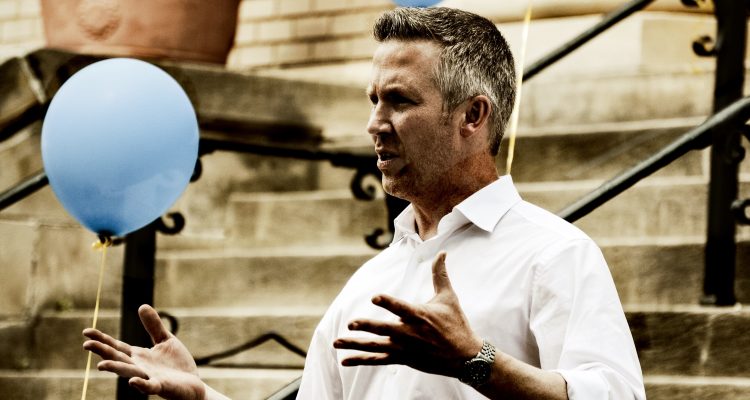Change.
Judging from the results of Wheeling’s municipal Election Day, the residents elected change in all but one of six wards, and including the mayor’s position.
While two long-term council members decided not to run for re-election and Vice Mayor Gene Fahey opted not to seek re-election in the city’s sixth ward in favor of campaigning for the top spot, two of the remaining three council members were voted out, and Fahey was defeated by Glenn Elliott.
Change, all right.
Elliott, who moved to downtown Wheeling’s Market Street when his company, Market Street Now, LLC, purchased the Professional Building in September 2013, faced four opponents in the race but still pulled away with 53 percent of the vote. Fahey, a member of Council for the past eight years, collected 38 percent, and Wheeling Island residents Alex Coogan (5 percent) and Tony Domenick (4 percent) collected the rest.
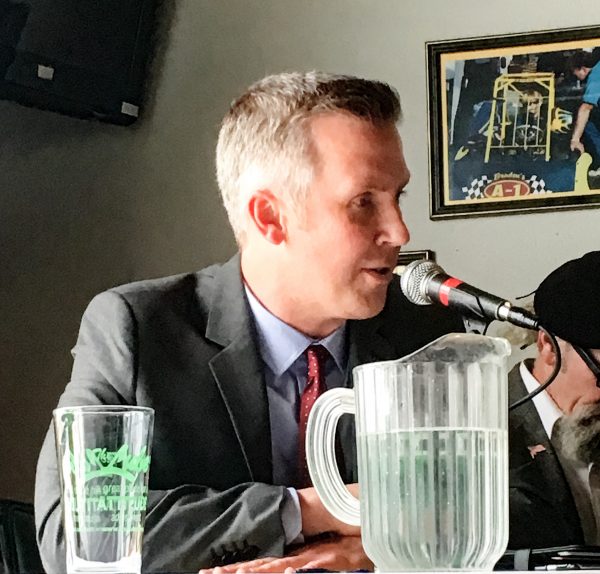
Change, for sure.
It’s what Elliott’s campaign promoted the most as he reminded residents of the unanimous votes during brief council meetings, and the graduate of Linsly (Class of 1990) also pledged to lead a more transparent operation than what Wheeling residents have witnessed in the past.
He’s been active with local organizations like ReInvent Wheeling, Wheeling Rotary, and the Wheeling Young Preservationists since moving to the Professional Building nearly three years ago, and Elliott believes he can take the reins of the progress that’s become a reality in Wheeling during the past decade.
Change?
One example may involve the schedule for Wheeling’s City Council meetings. The six ward representatives and the mayor currently meet on the first and third Tuesday of each month of the year with the initial monthly meeting set for noon and the second at 5:30 p.m. Therefore, Elliott’s first meeting as the Friendly City’s mayor is now scheduled for July 5.
The date won’t change, but the time of that meeting – and the average length – likely will, too, in order to deliver the residents the clarity he promised them since announcing his candidacy one year prior to May 10.
“The concept of transparency reflects the aspiration that most decisions of city council that affect the public (aside from those obvious areas that require executive session) occur in front of the general public instead of behind closed doors. This really isn’t a radical idea; in fact, it very much comports with the intentions of West Virginia’s Open Governmental Proceedings Act, which applies to municipal government and which dates in some form or another to 1975,” Elliott explained. “In the past 18 months I’ve attended at least 25 meetings of our current city council, and I’ve never witnessed any substantive discussion. I’ve never seen an amendment offered. I’ve never even seen a ‘no’ vote. I’ve instead seen the city clerk’s reading of a new resolution or ordinance followed by a unanimous vote without any discussion followed by the city clerk’s reading of a new resolution or ordinance and so on.
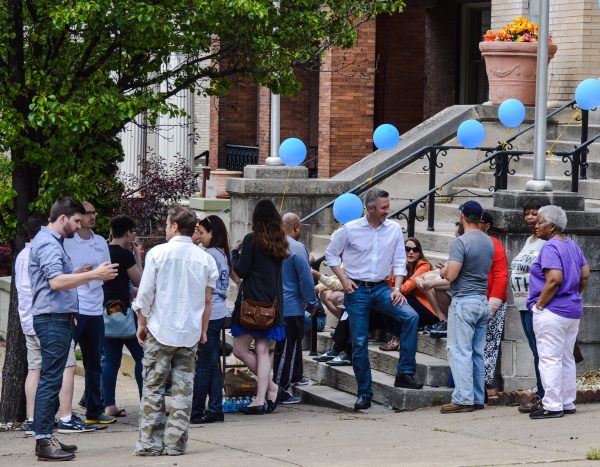
“One cannot witness this process and conclude anything other than that the decisions being voted on have been made before council members took their seats in council chambers. And even if many of these decisions are being made at the council committee level, as I suspect, it’s important to keep in mind that committees are comprised of a subset of council and instructed to make recommendations to the full Council for the latter’s consideration,” he continued. “Committees were not designed to be a substitute for actual discussion at the council level.
“As to the question of meeting times, that represents just one piece of the overall puzzle that will need to be considered by the new council. My personal belief is that 7:30 p.m. would be a better time for meetings than noon or 5:30 p.m., but I am open to being persuaded otherwise,” Elliott added. “I’d also be open to holding six council meetings per year in one of the city’s six wards, but what’s most important is that council meetings themselves are structured in a way that provides those citizens in attendance with something meaningful to take home. Last November, I sat through a 12-minute council meeting that included some major property acquisitions and transactions that I didn’t fully appreciate until reading the newspaper the following day. We can do better. We need to figure out ways to structure meetings and better utilize technology to keep citizens abreast of the issues being considered. If there are complex financial transactions being voted on, what’s wrong with having a PowerPoint diagram map out the flow of funds and property ownership? What information are we afraid of our citizens knowing?”
Zero, Elliott insisted.
“I do think Council needs to provide citizens with all the information necessary to consider the votes in question; it remains in the province of Council itself to make the actual decision,” he said. “We cannot put every issue up to popular vote, nor should we. All I’m suggesting is that a citizen who takes the time to attend a city council meeting is given a reasonable opportunity to understand precisely what decisions are being made and provided the opportunity to share his or her concerns. At the end of the day, it is the Council itself that has to make the decisions needed to govern our city.”
He joined three other Wheeling residents to announce intentions of running for office precisely one year before Election Day. Chad Thalman, Jeremy Morris, and Wendy Scatterday expressed their wishes to run for the first, second, and fourth wards, respectively, and Thalman and Scatterday joined Elliott with wins. Morris pulled out of the race in early December.
“I knew going into this campaign that I would be a considerable underdog when I announced, and I therefore recognized that I’d need some extra time to catch up, so I announced a year prior to Election Day—far earlier than your typical municipal candidate,” Elliott explained. “The strategy was simple: Take every opportunity to meet with people from every corner of the city; get a head start on raising funds, and utilize the lessons learned on the campaign trail to figure out what issues were most important to voters.
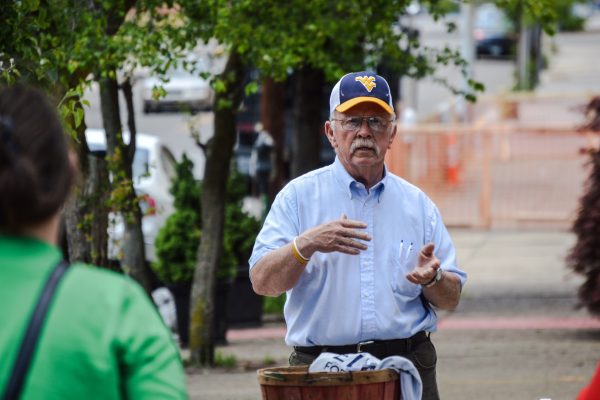
“What I found was an electorate that, by and large, felt that we had a city council doing what it wanted to do, not necessarily what anyone had asked it to do. And this was a problem, even as current Council delivered some good news on projects like the Boury Lofts, The Health Plan, and the WesBanco Arena improvements. Why? Because, while voters might have found these projects compelling, they were often more concerned about the dilapidated house next door, the rusting swing set in the unattractive neighborhood park at the end of their block, the crumbling alley behind their home, or the nearby stream that was prone to flooding,” he said. “What I found over the 12 months of my campaign was that we had a council whose focus on some of the larger, fancier projects had come at the expense of taking its eye off many of those smaller, peskier issues that impacted people’s daily lives adversely, and I think this made a big difference in the election results.”
As far as what made the most difference, Elliott defers to the voters of Wheeling, but he does believe front-porch visiting with residents made a difference as did his extensive use of social media.
“If I had to narrow it down to two aspects of my campaign that I feel truly resonated, I’d say knocking on doors and using social media to facilitate an actual conversation about policy ideas,” he said. “Door knocking may be time-consuming and exhausting at times, but it is one of the only opportunities you get to talk about issues one-on-one with voters on their home turf. It’s also an opportunity to learn about the issues affecting each neighborhood. I estimate I knocked on about 4,000 doors over three months. I consider every door worth it, and if I had to do the campaign over again, I’d knock on 5,000 doors, if not more.
“As for social media, I think political campaigns have a tendency to use tools like Facebook and Twitter mostly to self-promote with pithy one-liners, photo ops, and messages targeted towards those who are already supporters. I’m sure my campaign was guilty of that at times, but I made a genuine effort to use Facebook to present various policy ideas and to have substantive discussions. Some of my posts exceeded 1,500 words, and the conventional wisdom is that posts like that don’t work,” Elliott concluded. “But the lengthiest of my posts ranked among my most ‘liked’ and shared. I think campaigns sometimes can be guilty of underestimating the intelligence of voters by assuming they have no attention span for long-form discussions. That, to me, is a mistake and a missed opportunity. Voters crave information that shows not only a candidate’s policy ideas but also his or her thought process. A perfect example of this is found in the various candidate interviews done by Weelunk. My understanding is that they are very well read, and that runs counter to the prevailing notion that voters are responding only to soundbites and photo ops. I think the experts are wrong. Voters are looking for depth; they’re looking for nuance, and social media provide an excellent vehicle to deliver that to them.”
Elliott readily accepts the fact he and the new council members have much to learn about the operation of the city of Wheeling, and that is why he has welcomed meeting time with City Manager Robert Herron.
“It is incumbent upon those of us just elected to spend the next six weeks doing our homework on council rules, ongoing city projects, departmental structures, and staffing,” he explained. “On May 16, we initiated this process by having a meeting among all incoming council members with Mr. Herron. The meeting – which primarily consisted of an overview by Mr. Herron of ongoing city projects and upcoming decision points – lasted nearly 150 minutes with many questions raised and considerable ensuing discussion around the table. It was a very productive first installment in a series of such meetings I hope to hold before July 1.
“In addition to meetings with Mr. Herron, I also intend to host a series of meetings with various city department heads, along with tours of each department and tours of various city-owned properties,” Elliott continued. “I firmly believe that site visits like this are imperative before the new council makes any decisions with respect to these departments and properties.”
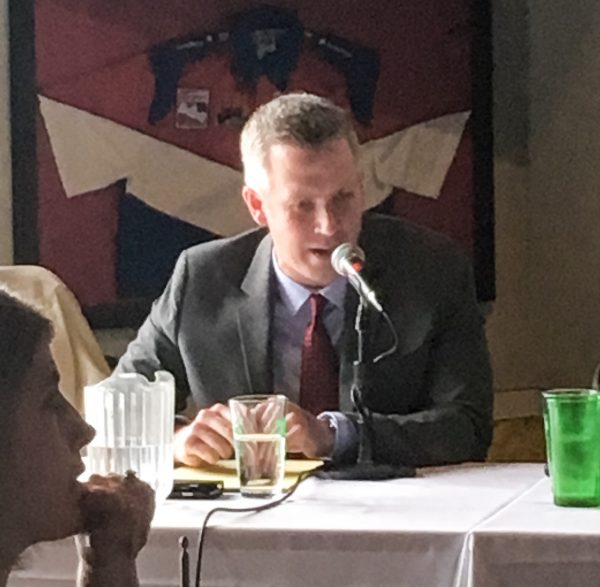
The new mayor walked away from those gatherings with even more ideas and a firm belief the transition will take place in smooth fashion thanks to dedication and the abilities and experience owned by Herron.
“I left with the very distinct impression that Mr. Herron and I will be able to have a very productive working relationship. He is a professional with many years of experience in his field who knows Wheeling and who knows the ins and outs of city government,” Elliott reported “With a new mayor and reshaped city council, there is obviously going to be a transition period in which all parties involved get to know one another better, and there will no doubt be a learning curve for many of the new council members, if not for Mr. Herron as well, as he transitions from working with the current council to the incoming one.
“But I have confidence in Mr. Herron to work with us to ensure a smooth transition this summer,” he continued. “And I see no current roadblocks to the new council working with Mr. Herron in the months and years ahead.”
He refused to day-dream about winning the election, and Elliott consistently corrected supporters when they envisioned him in the office. They would say, “when,” and he would say, “if.” In the end, though, 53 percent represented a convincing vote for Elliott and what he has promised the residents of Wheeling.
“I honestly didn’t know what to expect. I felt like I had run a very good campaign that had covered all the bases. I felt that I could win,” he said. “I felt that there was momentum behind my candidacy but I hadn’t done any official polling and knew that whatever confidence I had was based on a gut feeling much more than anything scientific.
“I am honored beyond words by the confidence that Wheeling’s voters have shown in me, but that honor comes bearing the heavy burden of responsibility,” Elliott added. “That’s weighty. That’s real. And it’s a stark reminder that even after a very long, drawn-out campaign, the hard work is only really just beginning.”
(Photos by Steve Novotney and James Guy)


